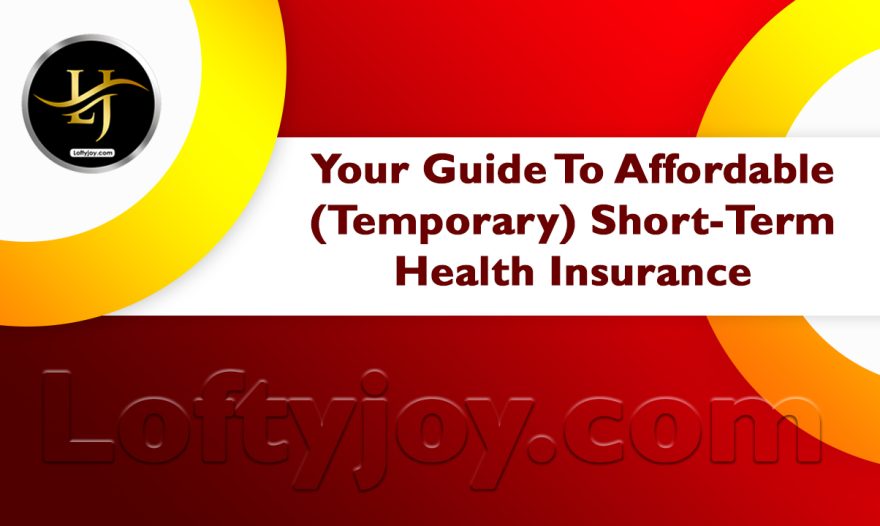Finding your way around healthcare insurance can be complex, especially when you are in need of immediate coverage without the constraints of a long-term plan. This is where short-term health insurance steps in as a viable solution.
In this article, we’ll explore the ins and outs of short-term health insurance, shedding light on its benefits, limitations, and how to find affordable options. Whether you’re between jobs, waiting for employer-sponsored coverage to kick in, or simply seeking temporary coverage, this guide will serve as your roadmap to understanding and acquiring temporary health insurance.
In This Article
What Is Short-Term Health Insurance?
Short-term health insurance refers to temporary healthcare coverage designed to fill gaps in insurance. Unlike traditional long-term plans, short-term insurance typically lasts for a few months to a year. It’s often chosen by individuals experiencing transitions such as job changes, graduation, or waiting for employer-sponsored coverage to begin.
These plans offer basic coverage for medical emergencies and unexpected illnesses, providing a stopgap solution until more permanent coverage is secured. However, they may not cover pre-existing conditions or offer comprehensive benefits like long-term plans. Short-term health insurance is known for its flexibility, affordability, and quick enrollment process, making it a popular choice for those in need of immediate coverage.
Benefits of Short-Term Health Insurance
1. Flexibility: Short-term plans offer flexibility in terms of coverage duration and options. You can choose the length of coverage that suits your needs, whether it’s for a few months or up to a year.
2. Affordability: Compared to traditional health insurance plans, short-term health insurance is often more affordable. Monthly premiums are typically lower, making it an attractive option for individuals on a budget.
3. Quick Coverage: Short-term health insurance plans can provide coverage as soon as the next day after enrollment, offering quick access to healthcare services when needed.
Limitations of Short-Term Health Insurance
While short-term health insurance has its advantages, it also has limitations:
Coverage Gaps: Short-term plans may not cover certain essential health benefits required by the Affordable Care Act (ACA), such as preventive care, maternity care, and prescription drugs. This can leave policyholders vulnerable to unexpected medical expenses.
Pre-existing Conditions: Short-term health insurance plans often exclude coverage for pre-existing conditions. If you have a pre-existing condition, you may not be able to get the coverage you need under a short-term plan.
How to Find Affordable Short-Term Health Insurance
Finding affordable temporary health insurance requires some research and comparison:
Research and Compare Plans: Take the time to research different short-term plans and compare their coverage options, premiums, deductibles, and out-of-pocket costs.
Consider Your Needs: Assess your healthcare needs and choose a plan that provides the coverage you need at a price you can afford. Consider factors such as doctor networks, prescription drug coverage, and maximum benefit limits.
Look for Discounts and Special Offers: Some insurance companies offer discounts or special offers on short-term plans. Look for these promotions to save money on your premiums.
Things to Consider Before Purchasing Short-Term Health Insurance
Before purchasing a temporary health insurance plan, consider the following:
Duration of Coverage Needed: Determine how long you need coverage and choose a plan that aligns with your coverage needs. Keep in mind that short-term plans typically have coverage limits and may not be renewable.
Understanding Policy Exclusions: Read the fine print of the policy carefully to understand what is and isn’t covered. Pay attention to exclusions, limitations, and restrictions on coverage.
Health History and Risk Factors: Consider your health history and any pre-existing conditions you may have. Keep in mind that short-term health insurance plans may not provide adequate coverage for pre-existing conditions.
Conclusion
Short-term health insurance can be a valuable option for individuals in need of temporary coverage. It offers flexibility, affordability, and quick access to healthcare services. However, it’s essential to carefully consider your needs and the limitations of short-term plans before purchasing coverage.
FAQs
1. Is short-term health insurance the same as traditional health insurance?
Short-term health insurance differs from traditional health insurance in terms of coverage duration, benefits, and limitations. While short-term plans offer temporary coverage, traditional health insurance provides more comprehensive coverage for longer periods.
2. Can I purchase short-term health insurance at any time?
Yes, you can typically purchase it at any time throughout the year. Unlike traditional health insurance plans, which are subject to open enrollment periods, short-term plans are available year-round.
3. Are pre-existing conditions covered under short-term health insurance?
Temporary health insurance plans often exclude coverage for pre-existing conditions. If you have pre-existing conditions, you may need to seek alternative coverage options.
4. Can I renew my short-term health insurance plan?
Some of the short-term plans offer the option to renew coverage for additional terms, but this varies depending on the insurance provider and state regulations.
5. How do I know if short-term health insurance is right for me?
Whether it is right for you depends on your individual circumstances, such as your health needs, budget, and coverage preferences. Consider consulting with an insurance agent or broker to explore your options and make an informed decision.

